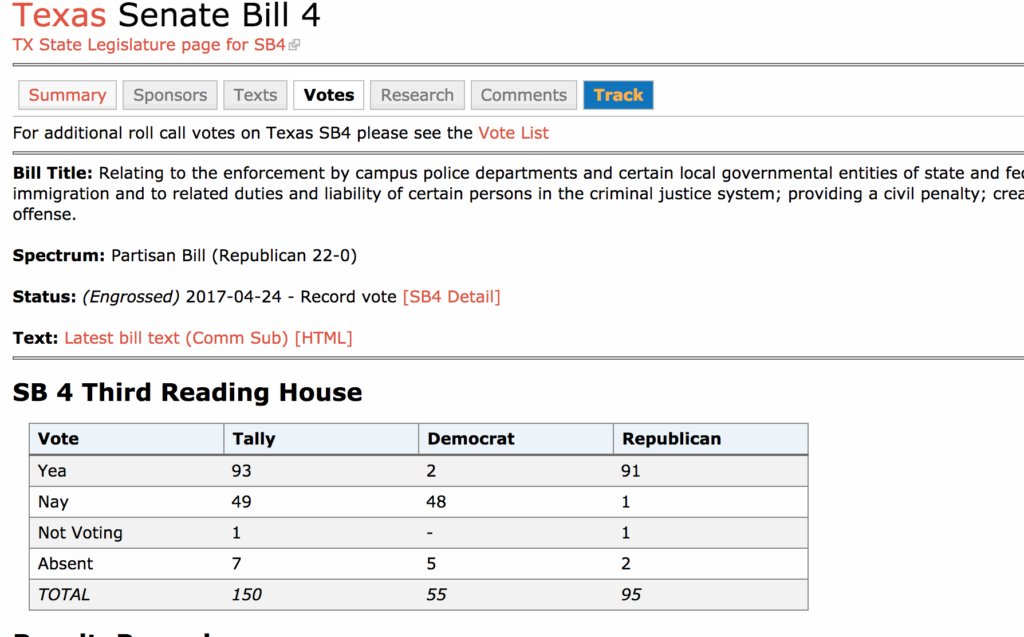AUSTIN, Texas (April 25, 2017) – Yesterday, a bill that would effectively prohibit so-called “sanctuary cities” that refuse to help enforce some federal immigration laws passed the Texas House.
Sen. Charles Perry (R-Lubbock) filed Senate Bill 4 (SB4) along with 19 cosponsors. The legislation would ban localities from adopting policies that prohibit or restrict local agents from enforcing of federal immigration laws in most situations. Practically speaking, if local law enforcement in Texas wants to utilize state and local resources to assist the feds with enforcement federal immigration laws, local governments will not be able to stop them.
The House passed SB4 by a 93-49 vote. It previously passed the Senate by a 20-10 vote. The version passed by the House yesterday included a number of technical amendments. It will now go back to the Senate for additional consideration.
BACKGROUND
Some U.S. cities, and the state of California, have refused to participate in a narrow segment of federal immigration enforcement. In all of these situations, government and law enforcement agencies in these cities don’t actively stop ICE from enforcing immigration laws. However, in a narrow sense, they simply don’t provide any support or assistance to federal agents. These cities leave it to the federal government to enforce federal law.
Non-cooperation with federal enforcement rests on a well-established legal principle known as the anti-commandeering doctrine. Simply put, the federal government cannot force states or their political subdivisions to help implement or enforce any federal act or regulatory program.
It would appear that Pres. Trump recognizes this as well. In his Jan. 25 Executive Order on “sanctuary jurisdictions,” he acknowledges that his policy of having state and local agents act as interior federal immigration enforcement will be done “with the consent of State or local officials.”
SB4 represents a constitutional way to force cities to help enforce immigration laws. The federal government cannot do it do it. But if a state decides it wants to spend its time, money and resources assisting the federal government, they can certainly make that choice.
WHAT’S NEXT
SB4 goes back to the Senate for consideration of the House amendments.
UPDATE, Wed, Apr. 26, 2016, 9:27a Pacific time
While we reported this bill as passed the House, through information provided by the usually-reliable Legiscan service (see screenshot of the vote below), we’ve learned that the record votes of 04-24 were procedural and not a final vote on the bill. As of this morning, the bill is still up for debate on the House floor and a vote should be expected soon.
-Michael Boldin, TAC
UPDATE, Fri, Apr. 28, 2016, 2:28p Pacific time
Early in the AM on Thursday, after a number of parliamentary moves to delay a vote, then get to a vote, the House finally passed SB4 by a wide margin. Since it was amended, it will go back to the Senate for a concurrence vote.

